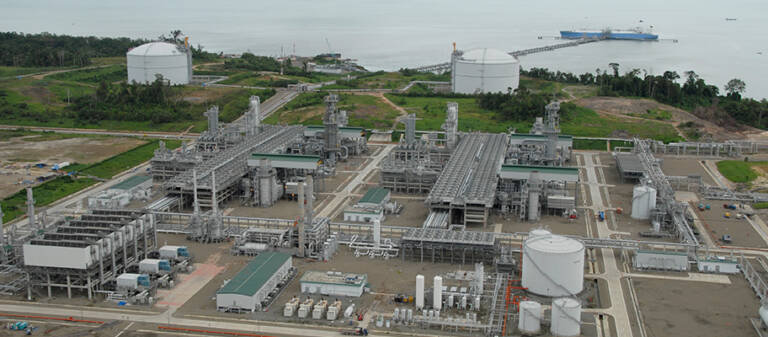Shell, ENI, Edison, Repsol and BP sue American company: it did not supply only 10 million liters of liquid gas

Last year, when the European Union found itself in a position to urgently find a replacement for the Russian pipeline, US LNG producers were hailed as saviors. Dozens of super-refrigerated liquid gas tankers have begun arriving in European ports and, from there, being stored for the winter.
Just a few months later, the saviors turned, in the eyes of buyers, into selfish and greedy profit-chasers. Now, an LNG dispute risks turning into a problem of international law, and a very, very big one at that.
For Europe last year, the US LNG industry was practically a godsend, despite the high price. For the U.S. LNG industry, the situation was similar: With so much new capacity planned, producers needed large, long-term buyers. And some of them found them in front of European Big Oil.
Even before the 2022 energy crisis, European oil multinationals were looking for growth opportunities in LNG where they could find them. The United States was a natural target for these opportunity seekers with its vast gas reserves and growing production. So several European companies, including Shell, BP, Eni, Repsol and Italy's Edison, have become investors in a US LNG project led by a company called Venture Global.
All five companies were foundation buyers, meaning they provided Venture Global with money to build its Calcasieu Pass liquefaction plant in Louisiana in exchange for Venture Global's commitment to supply them with certain volumes of LNG for a period long-term.
The plant has a capacity of 10 million tonnes and started producing them in early 2022, just in time for Europe. But instead of honoring contracts with European buyers, Venture Global chose to sell more LNG on the spot market. So now the Europeans are suing. Venture Global basically took the money and then did whatever it wanted.
All five energy companies have filed arbitration cases against the US LNG producer, the latest being Spain's Repsol, which appealed to the International Chamber of Commerce in September this year. Now these five companies are turning to Brussels and Washington to help them in the dispute. Apparently, international courts are not enough to ensure speedy justice.
Venture Global, which did not deny selling cargoes on the spot market, claims that the Calcasieu Pass LNG plant is not fully operational, which is why it has not delivered the full volumes expected under long-term contracts with the five companies Europeans. The reason it has not yet become fully operational, according to Venture Global, is faulty equipment. Such equipment, however, has not stopped the company from placing about 200 LNG cargoes on the spot market, according to Reuters.
“Such short-sighted and unprecedented behavior sets a worrying precedent that could erode market confidence and delay investment in US LNG export infrastructure that is still sorely needed to support Europe's energy security,” Shell said in a recent letter to the central authorities of the EU and the United States. , as quoted by the Financial Times, which reported the latest developments in the dispute.
Indeed, if the buyers' allegations are true, such conduct could have a significant negative impact on future growth in U.S. LNG export capacity. But perhaps more importantly, the case highlights how vulnerable the security of LNG supply is despite growing supply volumes. It also highlights how the financial crisis has caused a progressive
Paradoxically, the EU itself was a great supporter of the spot LNG market, until the conflict in Ukraine. There was a lot of LNG around and prices were low because Europe imported almost half of its gas from Russia and needed only modest volumes of liquefied gas. There was no point in committing to long-term contracts. Until most of the Russian gas disappeared and Europe suddenly realized that it could not abandon gas overnight.
LNG producers also favor the spot market because prices are higher there. They were especially higher last year, and many U.S. LNG producers took advantage, even when it meant they were violating the terms of their long-term contracts: They simply paid the penalty and still made more money as the world rushed by to purchase all products. LNG could.
Now BP, Shell, Eni, Repsol and Edison want Brussels and Washington to pressure Venture Global to honor its contractual obligations. The fact that they have failed to apply the necessary pressure on their own is another sign that the global LNG market is more complicated than it seems. Venture Global deemed this move “outrageous,” according to the FT, and called it a “call for interference” from governments.
We will now see who the court responsible for deciding the issue will agree with. This shows that there are no levels that are safe from bad legal interpretations.

Thanks to our Telegram channel you can stay updated on the publication of new Economic Scenarios articles.
The article Shell, ENI, Edison, Repsol and BP sue an American company: it did not supply only 10 million liters of liquid gas comes from Economic Scenarios .
This is a machine translation of a post published on Scenari Economici at the URL https://scenarieconomici.it/shell-eni-edison-repsol-e-bp-fanno-causa-a-societa-americana-non-ha-fornito-solo-10-milioni-di-litri-di-gas-liquido/ on Wed, 15 Nov 2023 06:00:55 +0000.
